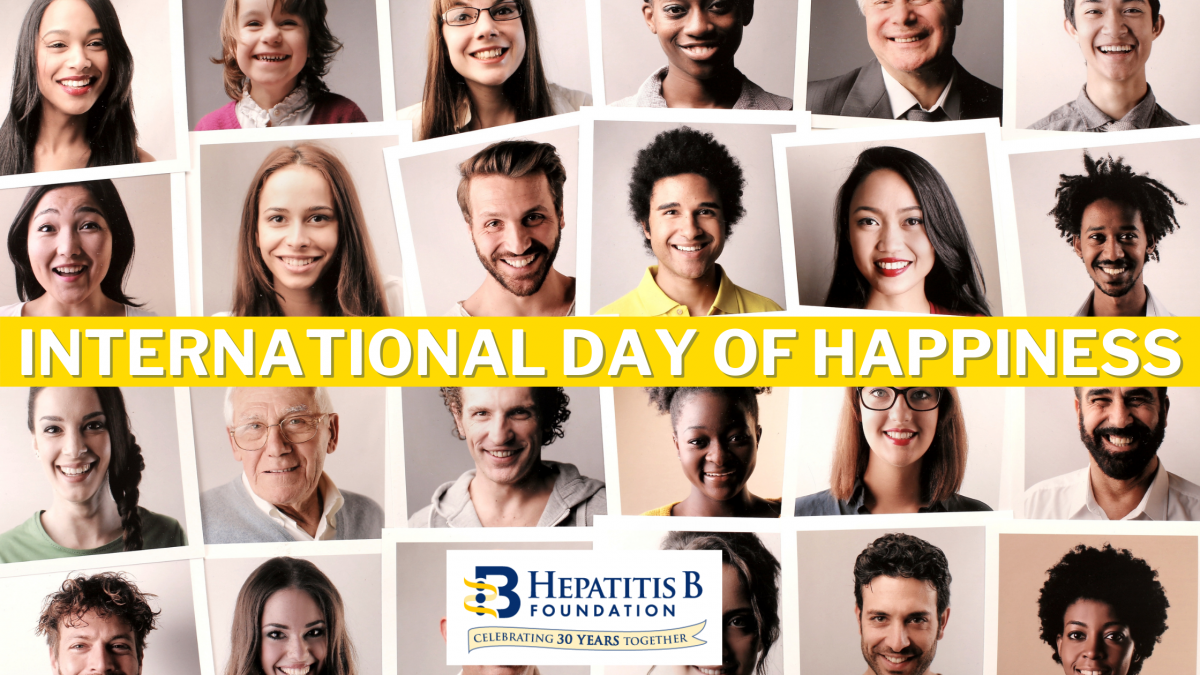
Hepatitis delta is a liver infection that results from the hepatitis delta virus (also known as HDV) that causes the most severe form of viral hepatitis known to human beings. It is also the smallest virus known to infect humans. Hepatitis delta is unique because it is dependent on the hepatitis B virus (HBV) to infect and reproduce in liver cells, so those already infected with hepatitis B are at a greatly increased risk of developing hepatitis delta.
Since testing for hepatitis delta is not as widespread as it should be (everyone who is diagnosed with hepatitis B should also be tested for hepatitis delta), the exact number of people living with hepatitis delta is unknown. Some reports point to 15-20 million people living with hepatitis delta worldwide, but other studies have estimated that as many as 60-70 million people could be living with hepatitis delta around the world.
Co-Infection with Hepatitis B
Co-infection with hepatitis B and hepatitis delta can cause more serious liver disease than hepatitis B infection alone. This includes faster progression to liver fibrosis (or scarring), higher risk of liver cancer, and earlier onset of cirrhosis or liver failure.
There are two ways in which someone living with hepatitis B can become infected with hepatitis delta. One is through co-infection, which occurs when an individual acquires hepatitis B and hepatitis delta infections at the same time, and the other is through super-infection, which occurs when someone who is already living with hepatitis B acquires hepatitis delta.
A co-infection is less common and will often clear up on its own within six months, but sometimes it can cause very dangerous or fatal liver failure. A superinfection is more common and is the culprit of severe liver disease. As many as 90% of people with a superinfection will develop chronic (life-long) hepatitis B and hepatitis delta infections, 70% of which will progress to cirrhosis. This compares to only 15-20% of chronic hepatitis B infections alone.
Transmission and Prevention
Hepatitis delta can be transmitted in the same ways as hepatitis B, through exposure to infected blood or bodily fluids. This occurs most often through the sharing of hygiene equipment; practices of bodily alterations, such as tattoos, piercings or scarification; unsterile healthcare practices; sharing needles, syringes, or other paraphernalia during injection drug use; or having unprotected sex. Although hepatitis B virus is most commonly transmitted from mothers to their babies during childbirth, it is believed that hepatitis delta transmission through this route is uncommon. Since hepatitis delta cannot be contracted on its own, only people who are already infected with hepatitis B or who are at high risk of contracting both viruses simultaneously can contract hepatitis delta.
A vaccine for hepatitis delta does not exist, but fortunately, the vaccine for hepatitis B protects against hepatitis delta as well! Just as with hepatitis B, family members and sexual partners of people living with hepatitis delta should also receive the hepatitis B vaccine to significantly lower their risk of contracting hepatitis B and hepatitis delta. For those who are already infected with chronic hepatitis B, the best way to protect yourself from hepatitis delta is to practice protected sex (with a condom) and avoid potential blood exposure.
All individuals who have been diagnosed with hepatitis B should also get tested for hepatitis delta. The test is a simple blood test. Hepatitis delta can be managed by a doctor – it is most dangerous when a person does not know they have it, making it that much more important to get tested!
Who is at Risk
If you are living with chronic hepatitis B, you are at risk for hepatitis Delta. Groups at risk for hepatitis delta include:
- People chronically infected with hepatitis B are at risk for infection with HDV.
- People who are not vaccinated for hepatitis B
- People who inject drugs
- Indigenous people and people with hepatitis C virus or HIV infection
- Recipients of hemodialysis
- Men who have sex with men
- Commercial sex workers
- Individuals from countries or regions where hepatitis delta prevalence is high
Several geographical hotspots have a high prevalence of hepatitis delta infection, including Mongolia, the Republic of Moldova, and countries in Western and Middle Africa.
For Patients
If you are living with hepatitis B, it is recommended you get tested for hepatitis delta. Please ask your healthcare providers to be tested for hepatitis delta.
The Hepatitis B Foundation has resources for patients living with hepatitis delta.
Drug Watch – Drugs and Medications in Development for Hepatitis Delta
Clinical Trials – Clinical trials are research studies that test new potential treatments for a disease. Talk to your doctor about possible clinical trials that could be helpful to you.
Find a Doctor – Visit our Physician Directory to locate a doctor near you! It now includes a specific search tool to locate doctors that also manage hepatitis delta patients. For additional assistance locating a doctor, email connect@hepdconnect.org.
Other educational resources include webinar recordings, multilingual fact sheets, and frequently asked questions.
For Providers
Providers in the United States can request hepatitis Delta tests from Quest Diagnostics. It is recommended that you first call your local Quest representative to confirm that the location does this specialty testing.
Below is the coding list for hepatitis delta testing as well as quantitative HBsAg and hepatitis B genotyping.
- Quest Test Code for HDV Antibody Total—4990 Set up 2 times/week
- Quest Test Code for HDV Antibody IgM—35664 Set up 2 times/week
- Quest Test Code for HDV RNA Quantitative PCR—37889 Set up 6 times/week
Quest does not currently offer a national test code for hepatitis delta antibody reflex to HDV RNA quantitative, but you can coordinate with the Quest commercial person that covers your account to possibly set up a custom reflex.
Authors: Beatrice Zovich and Evangeline Wang
Contact Information: info@hepb.org







